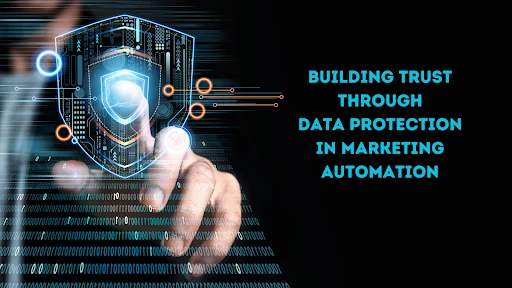Marketing automation has become an indispensable tool for restaurants, enabling personalized campaigns and data-driven decision-making. But with this power comes a critical responsibility: safeguarding customer data. In today’s digital landscape, trust is paramount, and a data breach can severely damage your restaurant’s reputation and customer relationships.
Building a Fortress Around Your Data: Best Practices for Restaurants
Protecting customer data isn’t just about complying with regulations; it’s about demonstrating respect for your patrons and building a foundation of trust. Here’s how to fortify your restaurant’s data security:
1. Empower Your Team: Knowledge is Your First Line of Defense
Ensure your entire staff understands cybersecurity protocols and data management best practices. Regular training sessions can keep them informed about evolving threats like phishing scams and social engineering tactics. Empower your team to be vigilant guardians of customer information.
2. Regular Audits: A Health Check for Your Systems
Conduct routine security audits to identify vulnerabilities and ensure your data protection measures are robust and up-to-date. Consider engaging a third-party security expert to provide an objective assessment and uncover potential blind spots.
3. Transparency Builds Trust: Communicate Your Commitment
Openly communicate your data protection policies to your customers. Explain how you collect, use, and safeguard their information. Provide clear opt-in and opt-out options for data collection practices. Transparency fosters trust and demonstrates your commitment to customer privacy.
4. Invest in Security: The Right Tools for the Job
Utilize secure platforms and technologies for managing customer data. Encryption, access controls, and regular software updates are essential for protecting sensitive information. Ensure your point-of-sale (POS) systems and customer relationship management (CRM) tools adhere to the latest security standards.
5. Prepare for the Unexpected: Develop a Data Breach Response Plan
Despite your best efforts, data breaches can occur. Develop a comprehensive response plan to mitigate damage and restore customer trust swiftly. Conduct simulations to test your plan’s effectiveness and ensure your team is prepared to act decisively in the event of a breach.
6. Open Communication: Encourage Customer Dialogue
Foster a culture of open communication. Let customers know they can reach out with questions or concerns about data privacy. This demonstrates your commitment to transparency and strengthens customer relationships.
Protecting Data, Building Trust, Ensuring Success
Data protection is not merely a legal obligation; it’s an integral part of building a successful and sustainable restaurant business. By prioritizing data security, you’re not only protecting your customers’ information but also safeguarding your restaurant’s reputation and fostering long-term loyalty.
To learn more about the intersection of data protection and marketing automation in the restaurant industry, check out the full article by Hamed Mazrouei on Forbes: Marketing Automation Tech: Using Customer Data For Restaurant Revenue Growth




